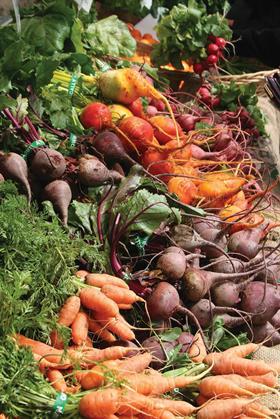
Diversified farming is better for the environment and results in strong and stable yields that compare with intensive agricultural models, according to a major new report.
Input-intensive crop monocultures “must be consigned to the past” to create a more sustainable global food system, found researchers from the International Panel of Experts on Sustainable Food Systems (IPES-Food).
Their research reviewed the latest evidence on different production models, cited reasons why industrial agriculture is locked in place despite its negative outcomes, and mapped out steps to break these cycles.
Among its wide-ranging conclusions, the study found:
- Average organic yields are equivalent to conventional agriculture, and 30 per cent higher in drought years (30-year study);
- Total outputs in diversified grassland systems are 15-79 per cent higher than in monocultures;
- Resource efficiency on small-scale agroecological farms is between two and four times higher than industrial-sized farms;
- There are 30 per cent more species of biodiversity on organic farms;
Entitled 'From Uniformity to Diversity: A paradigm shift from industrial agriculture to diversified agroecological systems', the research was led by Olivier De Schutter, former UN Special Rapporteur on the right to food.
It concluded that the solution is “to diversify agriculture and reorient it around ecological practices”, whether the starting point is highly-industrialised agriculture or subsistence farming in the world’s poorest countries.
Diversified farming systems not only lead to strong yields, but also perform particularly well under environmental stress, and have major potential to keep carbon in the ground, turning agriculture into one of the key solutions to climate change, the report found.
“Many of the problems in food systems are linked specifically to the uniformity at the heart of industrial agriculture, and its reliance on chemical fertilizers and pesticides,” said De Schutter. “Simply tweaking industrial agriculture will not provide long-term solutions to the multiple problems it generates.”
He added: “It is not a lack of evidence holding back the agroecological alternative. It is the mismatch between its huge potential to improve outcomes across food systems, and its much smaller potential to generate profits for agribusiness firms.”
The report also found that industrial agriculture is a key contributor to the most urgent problems in food systems, with findings including:
- Food systems contribute around 30 per cent of global greenhouse gas emissions;
- Around 20 per cent of land on earth is now degraded;
- The extinction of wild species and the application of insecticides threaten the 35 per cent of global crops dependent on pollination;
Finally, the report said that a fundamental shift towards diversified agroecological farming can deliver “simultaneous benefits for productivity, the environment and society”.



